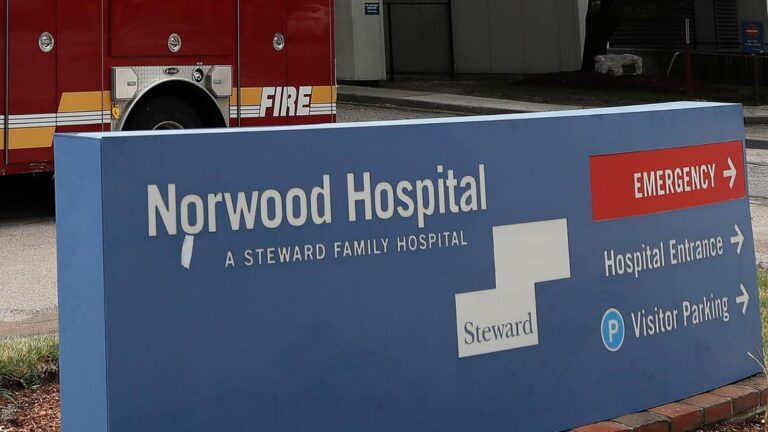Senate committee Chairman Bernie Sanders, I-Vt., said Steward’s bankruptcy shows the dangers of allowing private equity executives to take over hospitals.
BOSTON — A Senate committee on Thursday authorized an investigation into the bankruptcy of Steward Health Care, voting to subpoena the company’s CEO, Dr. Ralph de la Torre.
The subpoena will require Delatore to testify at a Senate Health, Education, Labor and Pensions Committee hearing on September 12.
Dela Torre declined a request to testify on June 25 from the committee’s chairman, Sen. Bernie Sanders (I-Vt.), and the committee’s top Republican, Sen. Bill Cassidy (R-Louisiana). Dela Torre also declined an invitation to testify at a local hearing in Boston chaired by Sen. Edward Markey, D-Massachusetts.
Steward announced its bankruptcy filing in May and said it planned to sell all of its hospitals.
Sanders said Steward’s bankruptcy shows the dangers of allowing private equity executives to make huge profits by buying hospitals, saddled them with debt and stripping them of their assets.
“Perhaps more than anyone in America, and this is certainly a dubious honor, Steward Healthcare CEO Ralph de la Torre personifies the outrageous corporate greed that permeates our entire for-profit health care system,” Sanders said.
Sanders said Delatore became “fabulously wealthy” by saddled hospitals from Massachusetts to Arizona with billions of dollars of debt and selling the land beneath them to real estate agents who charged unsustainably high rents.
As a result, Steward and the 30 hospitals it operates in eight states were forced to declare bankruptcy with $9 billion in debt, Sanders said.
Steward Health Care said in a statement that it plans to comply with the subpoena.
“We understand your desire for greater transparency about our progress and the path forward,” the company said. “The bankruptcy proceedings have been public, and the record to date (including briefings, court appearances, mediations and related proceedings) reflects active oversight and participation by various state regulators, government agencies, secured creditors and unsecured creditors.”
The company said parties involved in overseeing Steward’s bankruptcy case include the U.S. Trustee’s Office, a division of the U.S. Department of Justice.
The company is also under investigation in Malta.
Steward’s troubles in Massachusetts have angered politicians, including Democratic Gov. Maura Healey.
Healey said Tuesday that Massachusetts is reviewing bids for the Steward-owned hospital.
Markey said owning a hospital comes with special responsibility.
“This is not about buying a widget company. This is not about buying a coffee company. This is about buying a hospital and applying the exact same standards to the hospital that we apply to a widget company,” Markey said.
The Dallas-based company said the hospitals’ day-to-day operations will not be disrupted during the bankruptcy proceedings and will continue as usual during the Chapter 11 bankruptcy proceedings.
The company said in court filings that starting in late January, Steward began a “phased marketing process” to sell the hospital property.
Steward, which operates eight hospitals in Massachusetts, including St. Elizabeth Hospital and Kearney Hospital in Boston, filed for bankruptcy protection in the U.S. Bankruptcy Court for the Southern District of Texas.
“Steward Health Care has done everything in its power to operate successfully in an extremely challenging health care environment,” de la Torre said in a news release after the bankruptcy filing.
Markey’s caucus of Democrats wants assurances that health insurance and retirement benefits for employees at Steward-owned hospitals will be protected.


